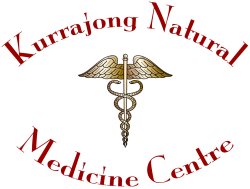How Long Covid Exhausts the Body
The New York Times
By Josh Keller Feb. 19, 2022
Millions of people continue to suffer from exhaustion, cognitive problems and other long-lasting symptoms after a coronavirus infection. The exact causes of the illness, known as long Covid, are not known. But new research offers clues, describing the toll the illness takes on the body and why it can be so debilitating.

Diagnosing Long Covid
Patients with severe Covid may wind up in hospitals or on ventilators until their symptoms resolve. Damage to the body from severe Covid — pneumonia, low oxygen, inflammation — typically shows up on traditional diagnostic tests.
Long Covid is different: A chronic illness with a wide variety of symptoms, many of which are not explainable using conventional lab tests. Difficulties in detecting the illness have led some doctors to dismiss patients, or to misdiagnose their symptoms as psychosomatic. But researchers looking more deeply at long Covid patients have found visible dysfunction throughout the body.
Studies estimate that perhaps 10 to 30 percent of people infected with the coronavirus may develop long-term symptoms. It’s unclear why some people develop long Covid and others don’t, but four factors appear to increase the risk: high levels of viral RNA early during an infection, the presence of certain autoantibodies, the reactivation of Epstein-Barr virus and having Type 2 diabetes.
The Immune System
“Dang, why am I always so sick?” — Messiah Rodriguez, 17
Long Covid patients appear to have disrupted immune systems compared to post-Covid patients who fully recover. Many researchers believe chronic immune dysfunction after a coronavirus infection may set off a chain of symptoms throughout the body.
One possibility is that the body is still fighting remnants of the coronavirus. Researchers found that the virus spreads widely during an initial infection, and that viral genetic material can remain embedded in tissues — in the intestines, lymph nodes and elsewhere — for many months.
Coronavirus RNA is visible in different body tissues at 500x magnification. Daniel Chertow et al., preprint via Research Square
Ongoing studies are trying to determine if these viral reservoirs cause inflammation in surrounding tissues, which could lead to brain fog, gastrointestinal problems and other symptoms.
Coronavirus components persist in one patient’s small intestine, 92 days after the start of their Covid symptoms. Christian Gaebler et al., Nature
Researchers have also found evidence that Covid may trigger a lasting and damaging autoimmune response. Studies have found surprisingly high levels of autoantibodies, which mistakenly attack a patient’s own tissues, many months after an initial infection.
A third possibility is that the initial viral infection triggers chronic inflammation, possibly by reactivating other viruses in the patient’s body that are normally dormant. The reactivation of Epstein-Barr virus, which infects most people when they are young, might help predict whether a person will develop long Covid, one study found.
Inside the intricate world of the immune system, these explanations may coexist. And just as different long Covid patients may have different symptoms, they may also have different immune problems, too. Identifying the problems that are central to each patient’s illness will be critical for guiding treatment, said Dr. Akiko Iwasaki, an immunologist at Yale.
For instance, a patient with autoantibodies might benefit from immunosuppressive medication, while a patient with remnants of the Covid virus should receive antivirals, Dr. Iwasaki said. “Depending on what each person has, the treatment would be quite different.”
The Circulatory System
“Something as simple as climbing on a ladder all of a sudden became a mountain.” — Eddie Palacios, 50
Many long Covid patients struggle with physical activity long after their initial infection, and experience a relapse of symptoms if they exercise. Initial studies suggest that dysfunction in the circulatory system might impair the flow of oxygen to muscles and other tissues, limiting aerobic capacity and causing severe fatigue.
In one study, patients with long-lasting Covid symptoms had unexpected responses to riding a bike. Despite having apparently normal hearts and lungs, their muscles were only able to extract a portion of the normal amount of oxygen from small blood vessels as they pedaled, markedly reducing their exercise capacity.
One possible culprit: Chronic inflammation may damage nerve fibers that help control circulation, a condition called small fiber neuropathy. The damaged fibers, seen in skin biopsies, are associated with dysautonomia, a malfunction of automatic functions like heart rate, breathing and digestion that is very common in long Covid patients.
Chronic inflammation in long Covid patients may damage small nerve fibers. Peter Novak et al., Annals of Neurology
These findings demonstrate that people with long Covid are suffering systemic physical problems, rather than just being anxious or out of shape, said Dr. David M. Systrom, an exercise physiologist at Brigham and Women’s Hospital who helped conduct the bike study.
“You can’t make up small fiber neuropathy by skin biopsy. That isn’t in somebody’s head,” Dr. Systrom said. “You can’t make up poor oxygen extraction to this degree. All of these are objective measures of disease.”
South African researchers found another circulation problem: Microscopic blood clots. Tiny clots that form during an initial Covid infection will typically break down naturally, but might persist in long Covid patients. These clots could block the tiny capillaries that carry oxygen to tissues throughout the body.
Platelets in the blood can become hyperactivated in Covid and long Covid patients, contributing to microclots. Etheresia Pretorius et al., Cardiovascular Diabetology
Inflammatory substances called cytokines, which are often elevated in long Covid patients, may injure the mitochondria that power the body’s cells, making them less able to use oxygen. Walls of blood vessels may also become inflamed, limiting the uptake of oxygen.
Whatever the cause, low oxygen levels may contribute to long Covid’s most common symptom, severe fatigue. Some long Covid patients meet the criteria for ME/CFS (also known as chronic fatigue syndrome), which often starts after a viral infection. Researchers have found that ME/CFS patients also suffer from a lack of oxygen triggered by circulatory problems. That puts enormous strain on the body’s metabolism and makes simple activities feel like strenuous exercise.
The Brain
“I approach a red light, my brain knows that it’s red, but it’s not reacting to the rest of my body to put my foot on the brake. Do you understand how terrifying that is?” — Samantha Lewis, 34
Even people with mild cases of Covid can experience sustained cognitive impairments, including reduced attention, memory and word-finding. Possible long-term neurological problems from Covid constitute “a major public health crisis,” according to Dr. Avindra Nath, the clinical director of the National Institute of Neurological Disorders and Stroke.
Researchers found a wide range of dysfunction in the brains of long Covid patients. Although it is unclear how often the virus directly penetrates the brain, even mild infections appear to cause significant brain inflammation, according to the researchers, who included Dr. Nath, Dr. Iwasaki and Dr. Michelle Monje, a neurologist at Stanford.
Infections may trigger the over-activation of immune cells called microglia in a way that appears similar to the process that can contribute to cognitive problems in aging and some neurodegenerative diseases.
Microglia are activated in the brain of a Covid patient, contributing to brain inflammation. Anthony Fernández-Castañeda et al., preprint via bioRxiv. Photos: Myoung-Hwa Lee
The Lungs
“I couldn’t breathe. It literally felt like someone was sitting on my chest.” — Angelica Baez, 23
Shortness of breath is a frequent symptom of long Covid. But common lung tests — including chest X-rays, CT scans and functional tests — often come back normal.
Using specialized M.R.I. scans, a team of British researchers found preliminary evidence of lung damage in a small group of long Covid patients who had never been hospitalized. Detailed scans of their lung function indicated that most of the patients took up oxygen less efficiently than healthy people did, even if the structure of their lungs appeared to be normal.
The researchers cautioned that a larger group of patients will be needed to confirm the findings. If the results hold up, possible explanations for the observed shortness of breath include microclots in lung tissues or a thickening of the blood-air barrier that regulates the uptake of oxygen in the lungs.
Living With Long Covid
“It’s really not something you can push through.” — Dr. Abigail Bosk
Many hospitals now offer post-Covid clinics or recovery programs, which bring together doctors with experience treating long Covid patients. Given the number of patients, some doctors and programs have long waits for appointments. It can help to plan ahead and try multiple options.
Click here for more information about Kurrajong Natural Medicine Centre and it’s Services.
For an appointment call (02) 4573 0784
Disclaimer
Disclaimer information for users of the Kurrajong Natural Medicine Centre, Namaste Yoga Kurrajong and The Herbal Health Coach website.
Page last updated: 26th June 2023
Information provided for education and research information only
The information on this website is presented by Kurrajong Natural Medicine Centre for the purpose of disseminating health information free of charge for the benefit of the public.
While Kurrajong Natural Medicine Centre has exercised due care in ensuring the accuracy of the material contained on this website, the information on the site is made available on the basis that Kurrajong Natural Medicine Centre is not providing professional advice on a particular matter.
This website is not a substitute for independent professional advice. Nothing contained in this site is intended to be used as medical advice and it is not intended to be used to diagnose, treat, cure or prevent any disease, nor should it be used for therapeutic purposes or as a substitute for your own health professional’s advice.
Kurrajong Natural Medicine Centre does not accept any liability for any injury, loss or damage incurred by use of or reliance on the information provided on this website.
Quality of information
Kurrajong Natural Medicine Centre makes every effort to ensure the quality of the information available on this website and updates the information regularly. Before relying on the information on this site, however, users should carefully evaluate its accuracy, currency, completeness and relevance for their purposes, and should obtain any appropriate professional advice relevant to their particular circumstances. Kurrajong Natural Medicine Centre cannot guarantee and assumes no legal liability or responsibility for the accuracy, currency, completeness or interpretation of the information.
The material may include the views or recommendations of third parties and does not necessarily reflect the views of Kurrajong Natural Medicine Centre or indicate a commitment to a particular course of action.
Links to other websites
This website contains links to other websites which are external to Kurrajong Natural Medicine Centre. Kurrajong Natural Medicine Centre takes reasonable care in selecting linking websites but Kurrajong Natural Medicine Centre accepts no responsibility for material contained in a website that is linked to this site. It is the responsibility of the user to make their own decisions about the accuracy, currency, reliability and correctness of information contained in linked external websites.
Links to external websites are provided for the user’s convenience and do not constitute an endorsement or a recommendation of any third party products or services offered by virtue of any information, material or content linked from or to this site. Users of links provided by this site are responsible for being aware of which organisation is hosting the site they visit.
Views or recommendations provided in linked sites may include the views or recommendations of third parties and do not necessarily reflect those of Kurrajong Natural Medicine Centre or indicate a commitment to a particular course of action. .



